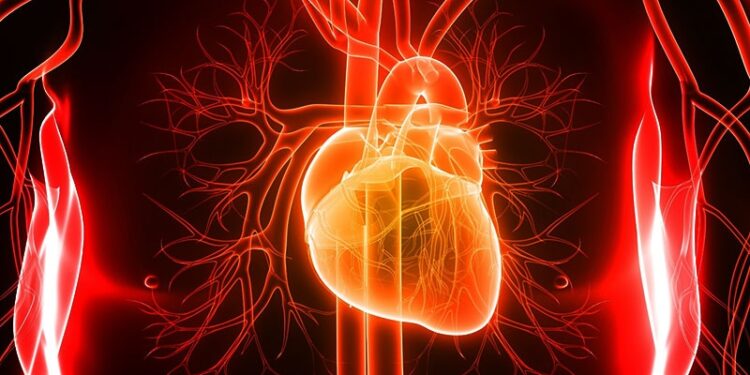[ad_1]
A new clinical practice guideline for the management of acute coronary syndromes (ACS), released today by the American College of Cardiology (ACC) and the American Heart Association (AHA), is backed by the best available evidence and includes updated pharmacologic and procedural care.
“Patients with ACS are at the highest risk for cardiovascular complications both acutely and chronically, which emphasizes the importance of staying up to date on the most recent evidence presented in this guideline,” Sunil V. Rao, MD, chair of the guideline writing committee and director of interventional cardiology at NYU Langone Health in New York City, said in a statement. “With appropriate management, we can improve outcomes both in the hospital and over the long term.”
The updated guideline is published simultaneously in the Journal of the American College of Cardiology and Circulation. The new ACS document updates the 2016 ACC/AHA Guideline Focused Update on Duration of Dual Antiplatelet Therapy in Patients With Coronary Artery Disease.
ACS includes conditions defined by sudden reduced blood flow to the heart muscle, expressed by symptoms such as chest pain, shortness of breath, and dizziness.
The guideline focuses on two of the associated conditions: angina and myocardial infarction (both non-ST-segment elevation myocardial infarction and ST-segment elevation myocardial infarction).
Each year, more than 800,000 people in the United States experience a heart attack.
Focus on Type 1 Myocardial Infarction
“It’s a very comprehensive document, but it also has a relatively narrow scope,” primarily focusing on type 1 myocardial infarction, Rao explained. “We did not touch on type 2’s, we did not touch on MINOCA [myocardial infarction with nonobstructive coronary arteries]. A lot of that is covered in the chest pain guideline.”
Among the most important updates for practicing clinicians is upgrading the class of recommendations for intracoronary imaging to class 1 (from class 2A in the revascularization guidelines), he said.
Since previous recommendations, there have been two or three new randomized trials showing that intracoronary-guided percutaneous coronary intervention (PCI) improves clinical outcomes better than angiography-guided PCI.
First Inclusion of a Mechanical Circulatory Support Device
Use of the intravascular microaxial flow pump (Impella) for cardiogenic shock related to acute myocardial infarction has been incorporated into the guideline.
“That’s based on one trial, the DanGer Shock trial,” Rao said. “That trial was interesting because it showed a reduction in mortality, but it was counterbalanced by an increase in complications. There was a lot of discussion by the guideline committee around this trial. Taking into account the balance of benefit and risk, the class of recommendation was a 2A. This is really the first time a mechanical circulatory support device is getting a recommendation in the guidelines.”
Among other recommendations is guidance on dual antiplatelet therapy, which is recommended for patients with ACS. The committee recommends ticagrelor or prasugrel over clopidogrel for patients with ACS who are undergoing PCI.
High-intensity statin therapy is recommended for all patients with ACS, with the option to start concurrent ezetimibe.
Statin Recommendations
A nonstatin lipid-lowering agent such as ezetimibe, evolocumab, alirocumab, inclisiran, or bempedoic acid is recommended for patients already on maximally tolerated statin who have a low-density-lipoprotein cholesterol level of ≥ 70 mg/dL (1.8 mmol/L), the committee states. “It is reasonable in this high-risk population to further intensify lipid-lowering therapy if the low-density-lipoprotein cholesterol level is 55 to < 70 mg/dL (1.4 to < 1.8 mmol/L) and the patient is already on a maximally tolerated statin."
The ACC and AHA guideline was written in collaboration with and endorsed by the American College of Emergency Physicians, the National Association of EMS Physicians, and the Society for Cardiovascular Angiography & Interventions.
Rao reported no relevant financial relationships. Disclosures for co-authors are available in the published guideline.
[ad_2]
Source link : https://www.medscape.com/viewarticle/whats-new-acs-guidelines-2025a100052s?src=rss
Author :
Publish date : 2025-02-27 19:33:52
Copyright for syndicated content belongs to the linked Source.














